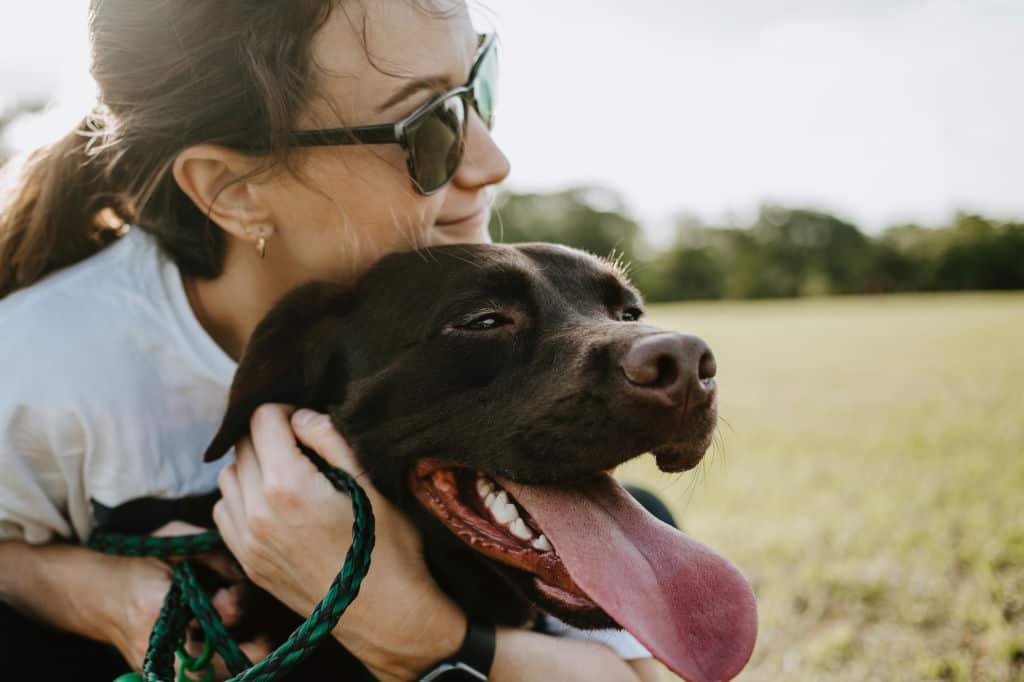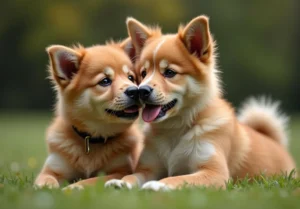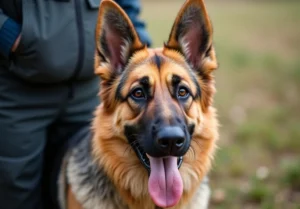I’ve often asked whether dogs can feel these emotions, such as gratitude. They can sure offer their emotional support to us, but can they feel grateful? After years of training dogs and learning about their behavior, here’s what I realized.
Dogs communicate in a myriad of subtle ways, and what may seem like an ‘ungrateful dog’ behavior might be a form of communication we’re misinterpreting. It’s crucial to observe their entire body language to get the complete picture.

Why Would a Dog Not Appreciate You?
Dogs rarely appreciate people in the same way that adults do. They do not think or feel like we do. They have no moral system, and their dog’s emotional development is equal to that of a two or 3-year-old child.
While they experience some basic emotions, dogs don’t experience sophisticated social emotions such as hate, remorse, pride, humiliation, or gratitude.
A dog cannot appreciate what you do for them since they cannot understand what life would be like without you or that you spend time and effort on them that they could employ elsewhere.
However, if your dog recently changed behavior due to some training, you might need more positive interactions to balance things out.
If your dog is interested in a stranger or a visitor, it doesn’t mean they don’t love you. Strangers may be the mysterious influence who approves of everything. On the other hand, you must be both a bad and a good person to your dog. Your dog only wants the good, and that’s good strangers.
However, if you leave your dog with someone else to conduct errands, they may merely mop by the door until you return. Thus training is a requirement to make the dog follow all the rules you set.
In simple terms, the dog may be acting on their own simply because they can – because you’ve allowed it. My dog never gets a free treat and needs to sit before I give him food. Because we gave in, our prior dog became a beggar and would become very aggravated.
It’s intriguing to ponder if dogs feel gratitude. While they might not feel ‘thankful’ in a human sense, their joyous greetings, loyalty, and desire for closeness suggest a profound bond and appreciation for their humans.
Can Dogs Be Selfish?
We can say with high certainty that dogs have no concept of what it means to be selfish.’
What you would consider a selfish dog is simply acting like the animal it is and feels. One reason why dogs may appear “selfish” to you is perhaps because they have the mental age of a child, and human children are naturally selfish until they learn to share.
When deciphering if dogs feel gratitude, remember that their emotional expressions are different. A dog seeking its favorite toy or favorite spot on the couch isn’t necessarily being selfish – they’re merely following instinctual behaviors.
Your dog, like you, has a distinct personality. Their emotional cognition is similar to that of a 3-year-old. Anything other than feeding and playing is considered labor for them, especially if they’re untrained.
I don’t believe dogs have the emotion of selfishness. If the dog is behaving “selfishly” in human terms, I would conclude that the dog has been inadequately trained and does not trust you. You should invest some time in training the dog.
Why Would a Dog Ignore You?
Dogs, like humans, have off days. If your usually affectionate pet suddenly appears ungrateful or distant, consider external factors like health issues or changes in their environment.
There are numerous reasons why a dog may appear to be ignoring you. First, certain breeds are more self-sufficient than others. Shibas, for example, are more independent and catlike than most other dog breeds.
Other times, your relationship may need something to improve it. Your relationship may need some fixing. This is particularly true for rescue dogs.

Try simple training if your dog doesn’t come to you when you call them. Call them just to give them a treat or a belly rub, then let them do whatever they were doing.
According to an old saying among dog trainers, if you’re not training the dog, the dog is training you. However, to effectively train your dog to listen to you, you must put in some effort and stay firm and consistent.
Can You Get Your Dog to Respect You?
If you’ve been relying too heavily on the “Alpha-model” and it’s not working, throw out all of your alpha, pack leader, and dominance beliefs. Dogs are far more complex than the misconception that they only understand alpha. They do understand it, but there’s more to it.
Positive reinforcement, not “respect,” should be used to teach your dog to do what you want through food and prizes.
If you’ve been training your dog, and they still don’t listen, you may be doing something wrong. Positive reinforcement works, by definition. It is effective on humans, dogs, and wild animals. If it’s not working, it’s not positive reinforcement – it’s something else.
Set the ground rules and follow them. Use food or treats with hugs or just “good boy,” and your dog will quickly learn to respect you. However, persistence and firmness in tone and teaching are required, and this constancy will pay off.
Punishment should be avoided at all costs. In the best-case scenario, you will have a terrified dog who does not trust you. So try the R+ first, and you’ll see great results.
Building trust is a two-way street. Just as we desire our dogs to be grateful for our care, they seek our acknowledgment of their loyalty and affection.
Sometimes all you need is a good walk. Spend time walking and exploring with your dog. You should spend some physical time together, pet your dog, and exercise it from time to time.
What Are the Signs of an Affectionate Dog?
Loose body language and actively approaching you (even if it’s just to sit near you, facing away) are good signs that the dog likes you. They will wag their tail and come to greet you when they see you or lick your face.
More positive signs include:
- Maintaining eye contact
- having an open mouth or “smile”
- responding well to physical contact with a relaxed body
- having a neutral or wagging tail
- having expressive and happy ears and face.
In understanding a dog’s affection signs, it’s also easier to debunk the myth of an ‘ungrateful dog.’ Often, their love and gratitude manifest in ways we might overlook, like a nudge of their head or the calmness they show when near you.
FAQs
Can dogs hold a grudge or be mad at you?
While dogs can’t hold grudges like humans, they can recall the situation and be more careful and apprehensive. It can also escalate into a dislike or worse if it continues. For untrained dogs, if something is not up to their wishes, it can throw them off their routine.
Can dogs be manipulative towards you?
Dogs can’t manipulate in the way humans do. However, they can act a sure way to get what they want because they learned it works. A study published in Animal Cognition found that dogs can deceive us to get something they desire, which researchers called tactical deception.
What is the least affectionate dog breed?
Many dog breeds are more independent and don’t enjoy cuddling as much as others. These include Afghan Hound, Chow Chow, Malamute, Bloodhound, Shiba Inu, Scottish Terrier, Irish Wolfhound, Basenji, Borzoi, and many others.
What is the most affectionate dog breed?
Some of the most affectionate breeds include Golden Retriever, Labrador Retriever, Dachshund, Great Dane, German Shepherd, Brussels Griffon, Bulldog, Boxer, Staffordshire, Pit Bull Terriers, Newfoundland, Cavalier King Charles Spaniels, Chihuahuas, Bichon Frise, and many others.
Alex, a passionate animal lover, has experience in training and understanding animal behavior. As a proud pet parent to two dogs and three cats, he founded AnimalReport.net to share insights from animal experts and expand his knowledge of the animal kingdom.




